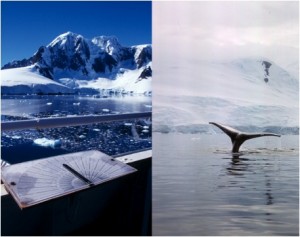
In these troubled economic times, scientists are under increasing pressure to (a) demonstrate the value of the services we provide to society, and (b) find creative ways to provide those services at ever-lower cost. Money is scarce, and environmental research is competing for funding with other worthy causes. Because many of the biggest foundations in the charitable sector make funding decisions based on the year-end value of their portfolio, an economic downturn like the 2008 crash can affect funding decisions for years to come, so that grantmaking remains low and risk-averse long after the private sector has started to experience fiscal recovery.
At Oceans Initiative, we specialize in doing more with less.
The theme of Rob’s doctoral thesis was how to study whales when you have no money. The mathematical models at the core of his PhD research were cutting edge and represented an interesting scientific question in their own right, but their real societal value was to provide cost-effective tools to estimate how many whales are in an area by collecting sightings from ships that were already on the water: platforms of opportunity. He developed the methods in the Antarctic, where research costs are high and whale populations are still recovering from historic whaling. Our colleague, Nicole Koshure, recently earned her Master’s degree from Simon Fraser University using a similar approach to estimate abundance of cetaceans around Vancouver Island using sightings collected from the Straitwatch monitoring vessel.
We’ve just read about a new partnership between UVic and BC Ferries, where forward-thinking oceanographers have installed sophisticated sensors on ferries to collect oceanographic data to monitor the health of the Strait of Georgia. We think this is a great idea. In our view, funding is the greatest challenge we face in marine conservation. Kurt Vonnegut said it best: “We could have saved the Earth but we were too damned cheap.” True enough, but given the financial realities we face, there is also a compelling need for scientists to identify clever, cost-saving methods so we can identify ways to be sound stewards of the environment at minimal cost to society.

